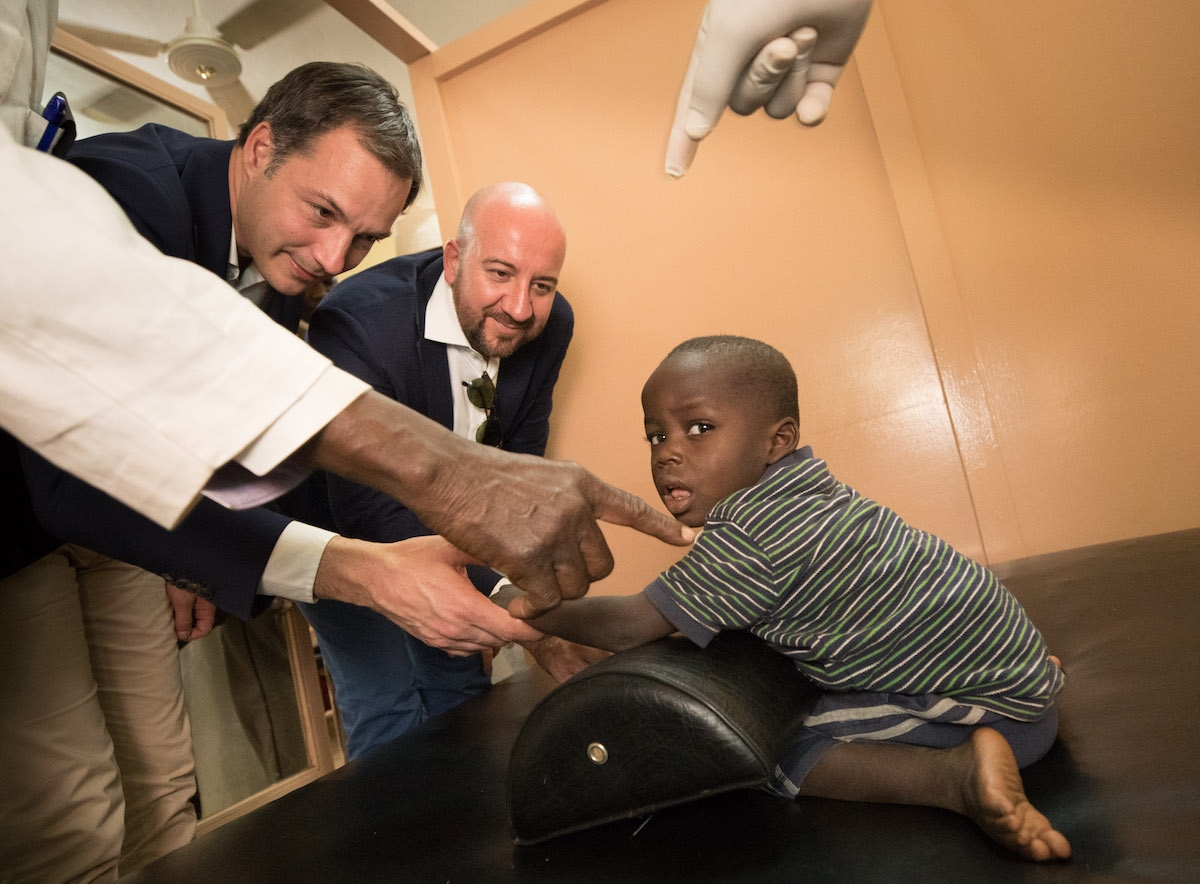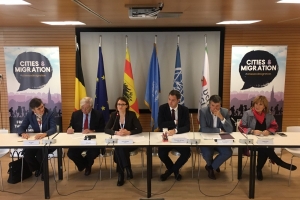Belgium takes an innovative humanitarian approach in Mali

Today, Deputy Prime Minister and Minister of Development Cooperation Alexander De Croo and Prime Minister Charles Michel visit a revalidation center in Bamako (Mali). Their visit will give them a first-hand view on how the innovative humanitarian approach of Belgium works in the field. During the visit in Bamako, Handicap International will present the development of 3D-printed limbs.
In many regions affected by crises, it can be difficult for people with heavy physical injuries to find quality prostheses. In many cases, they need to cope with wooden prostheses which do not fit well and which actually worsen their physical pain. This is why Belgium, together with Handicap International, invests in the development of 3D-printed limbs. With 3D-printing and computer-driven designs of limbs, more people get access to quality artificial limbs.
Doubling of investments in humanitarian innovation
Belgium’s development cooperation chooses deliberately for this innovative approach. In the words of Alexander De Croo: “Humanitarian needs are rising every year. More and more people die because of humanitarian crises and conflicts. Still, only one per cent of humanitarian means is dedicated to humanitarian innovation and research. We must change this. More innovation will save more people. This is why next year, Belgium will double its investment in humanitarian innovation to 20 million.”
Belgium also plays the card of innovation in its approach to financing. Together with the Red Cross, Belgium developed the very first Humanitarian Impact Bond. This new financing mechanism brings together 19 million EUR from social investors for the construction of rehabilitation centers in conflict zones. One of these centers is in Mali, the other two are located in Nigeria and DRC. The ICRC uses the means made available by the Humanitarian Impact Bond also to enhance their service to the patients. Extensive attention also goes to innovative management, digitalisation and data collection.
A results-based approach
The group of outcome funders will pay back social investors only once the 5-years rehabilitation programme of the ICRC reaches the results set at the beginning. If these results are not reached, social investors get back only 60% of their investment and the ICRC pays a fine of 10%.
Belgium was together with the ICRC one the pioneers of this new humanitarian financing mechanism. It belongs to the group of outcome funders. Our country has earmarked 8,7 million EUR for that purpose. Switzerland, the United Kingdom, Italy and the “La Caixa” Foundation are also outcome funders.
According to Alexander De Croo: “Available humanitarian resources get exhausted faster and faster because of the increasing number of humanitarian crises. This is why we are looking for new forms of financing such as the Humanitarian Impact Bond which bring social investors on board and put a strong emphasis on reaching results”.


